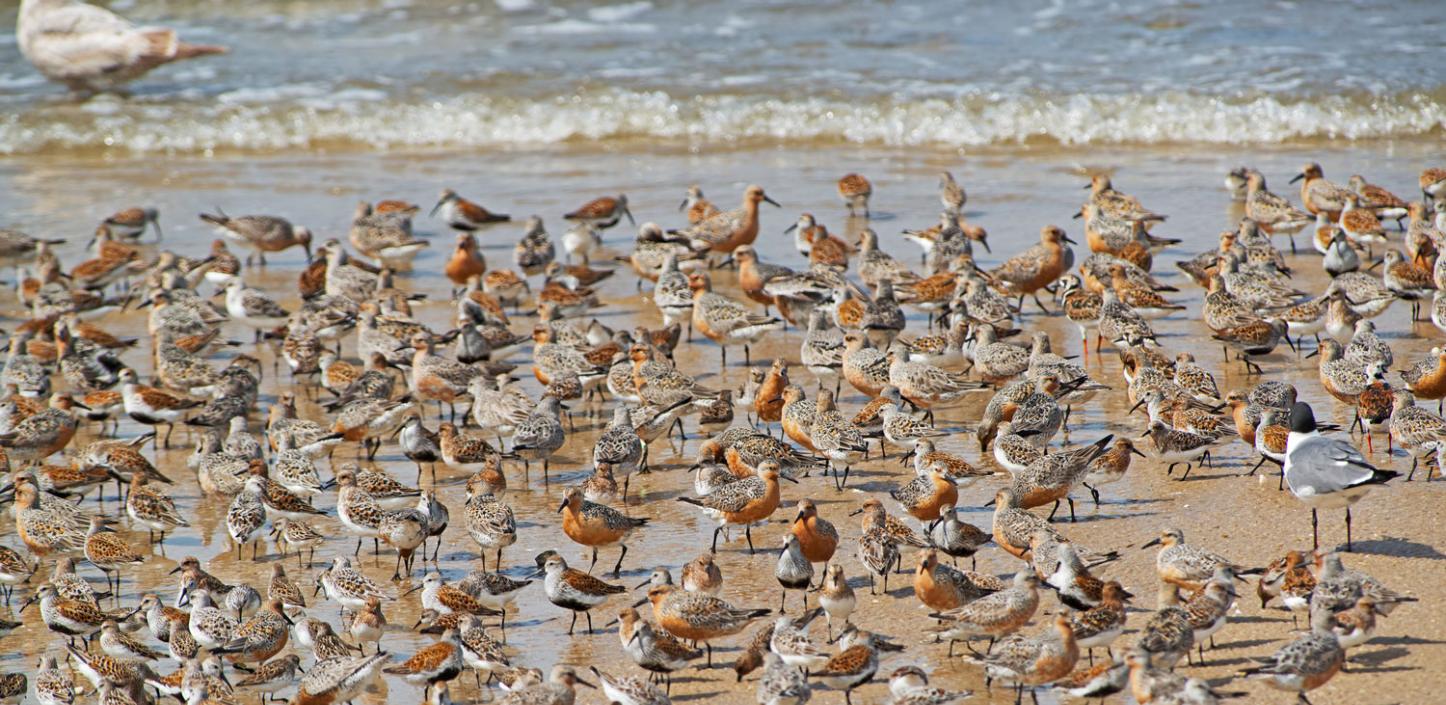
NFWF Announces More Than $6.9 Million in Grants to Improve the Health of the Delaware River Watershed
The grants were awarded through two programs administered by NFWF, the Delaware River Restoration Fund and the Delaware Watershed Conservation Fund. The Delaware River Restoration Fund (DRRF) is administered in cooperation with the Delaware River Watershed Initiative—an NGO-driven partnership between leading conservation organizations to protect and restore water quality in the Delaware River watershed—with major funding provided by the William Penn Foundation.
The Delaware Watershed Conservation Fund (DWCF) is funded by the U.S. Fish and Wildlife Service to achieve the goals of the Delaware River Basin Conservation Act. The Act empowers federal, state, regional and local partners to collaboratively identify, prioritize, and implement restoration activities within the watershed.
“The 41 projects announced today will improve both fish and wildlife habitat and water quality across the Delaware River watershed,” said Jeff Trandahl, executive director and CEO of NFWF. “They will improve drinking water for more than 15 million residents in four states while conserving habitat for species including red knots, eastern brook trout, American shad and golden-winged warbler.”
The grants provide vital support to migratory and resident wildlife, fish and native plants, and contribute to the quality of life and economic vitality of the communities in the watershed. In addition, these grants support projects that are essential for concurrently and efficiently advancing the goals of the Delaware River Watershed Initiative, NFWF’s Delaware Watershed Business Plan, and the Delaware River Basin Conservation Act.
“The Delaware Watershed Conservation Fund was created to support a long-term vision for sustaining fish, wildlife, and natural resources in a region where lives and livelihoods are tied to a healthy environment,” said Wendi Weber, U.S. Fish and Wildlife Service’s North Atlantic-Appalachian Regional Director. “In its second year, the fund is already helping to build a future for the watershed by uniting partners and stakeholders to improve quality of life in their communities and contribute to lasting conservation outcomes.”
The awards announced today were granted to projects in Delaware, New Jersey, New York and Pennsylvania. In total, the projects will improve 2,325 acres of forest habitat, treat polluted runoff using agricultural conservation practices on nearly 1,300 acres, prevent 5.3 million gallons of unfiltered stormwater from entering the watershed, and restore 12.4 miles of instream habitat in critical headwaters. Grant awards include:
- (New Jersey) $160,000 through DRRF to American Littoral Society to restore water quality through green stormwater management and resident education in the Cohansey River Watershed
- (Pennsylvania) $249,325 through DRRF to Stroud Water Research Center to implement whole farm plans on at least eight farms, and conduct farmer-to-farmer trainings on soil and stream health in the Brandywine-Christina
- (New York) $249,998 through DWCF to Friends of the Upper Delaware River to improve trout habitat and flood management through stream stabilization and restoration
- (Delaware) $100,000 through DWCF to Ducks Unlimited to restore 90 acres of shallow freshwater ephemeral marsh and managed wetlands at the Coastal Delaware National Wildlife Refuge Complex
A full list of 2019 Delaware River Restoration Fund projects receiving grants is available here. See the full list of 2019 Delaware Watershed Conservation Fund grants here. Additional support is provided by the U.S. Department of Agriculture’s Natural Resources Conservation Service.
“As the land restoration arm of the Delaware River Watershed Initiative – complementing strategic land protection – the Delaware River Restoration Fund has had a positive impact on tens of thousands of acres of land that have been degraded over time or otherwise contribute to unhealthy levels of pollution in our rivers and streams,” said Andrew Johnson, Watershed Protection Program Director at the William Penn Foundation. “Through the fund, NFWF has provided support to dozens of conservation organizations for strategically pinpointed projects within the Initiative’s priority landscapes. We are pleased to support these smart and strategic efforts to protect clean drinking water.”
The Delaware River watershed covers 13,539 square miles of land and water, running from the Catskills in New York through Pennsylvania and New Jersey, ultimately emptying into the Delaware Bay. The watershed is home to native brook trout, red knots, river herring, freshwater mussels, oysters and many other species that are economically, ecologically and culturally important to the region. Urban and suburban waterways play a major role in the watershed’s communities, with headwaters in neighboring rural areas. Grant projects are implemented in a variety of landscapes across the watershed, serving to improve habitat for local species, increase conservation practices, and ultimately benefit water quality locally and for those downstream.
For more information about NFWF’s Delaware River efforts, please visit www.nfwf.org/delaware.
About the William Penn Foundation
The William Penn Foundation’s work aims to secure a healthy Delaware River watershed, demonstrated by improved water quality in strategic places, sustained funding and regulatory protections for clean water, and increased access to and use of the basin’s rivers and streams. For more information, visit www.williampennfoundation.org.
About the U.S. Fish and Wildlife Service
The U.S. Fish and Wildlife Service works with others to conserve, protect, and enhance fish, wildlife, plants, and their habitats for the continuing benefit of the American people. For more information, visit www.fws.gov.
About the National Fish and Wildlife Foundation
Chartered by Congress in 1984, the National Fish and Wildlife Foundation (NFWF) protects and restores the nation’s fish, wildlife, plants and habitats. Working with federal, corporate and individual partners, NFWF has funded more than 4,500 organizations and generated a conservation impact of more than $5.3 billion. Learn more at www.nfwf.org.
###